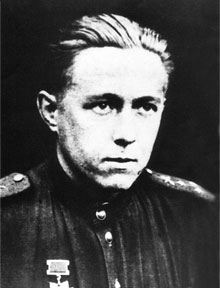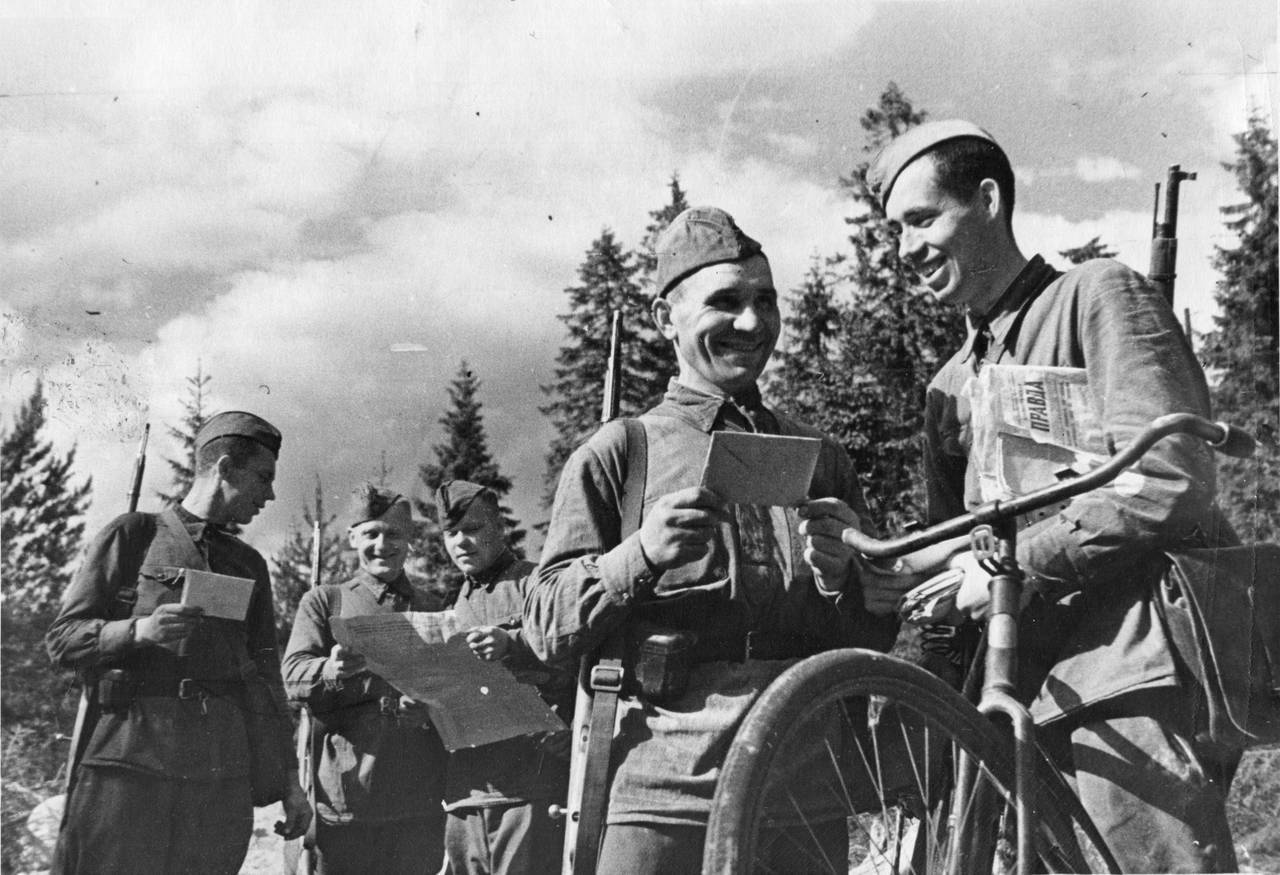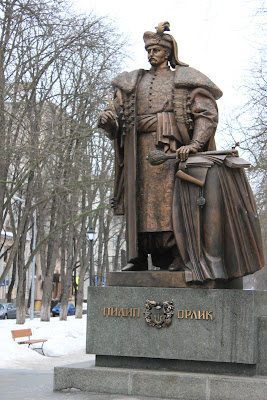A summary of Chapter 1
of Aleksandr Isayevich Solzhenitsyn's
Gulag Archipelago
Imagine you are a soldier, not just any soldier, but an officer, a captain in charge of 120 men and not just just in any Army but the Soviet Army, the Soviet Army at war, not just any war, but the Great Patriotic War. The Year is 1945, February.
Maybe you know that today is Chinese New Year - the year of the rooster. You mail a letter to a friend, Sasha, he's on the Ukrainian front. You lead a patrol behind enemy lines to reconnoiter the exact location of the enemy artillery battery and command post. You have been wounded several times. You are decorated for bravery twice. These thoughts occur to you after the mission just as you present your report to the Brigade Commander. The self important twit does not even bother to stand up as you make your report.
A thought flashes in your mind, your service revolver in your holster, "Shoot him!" You dismiss such thoughts. He has never done you any harm. He doesn't respect you, doesn't like you. You tell yourself to that you should rest. You think about the brutality of the consequences, arrest, a firing squad, and your wife in poverty. You shift back on to one foot and begin a sentence with "The Germans." But what about the rooster? What does a rooster do? Cocks and crows. By the time the cock crowed, Peter had denied his Lord three times. But you will never deny your country. You are a patriot. You are a socialist. You believe in the rightness of your cause and the fidelity of your country. Yet the word 'Traitor' has invaded your mind like a burglar in the night.
Your orderly, a think be-speckeled man with a round face hands you a letter. Nina, your wife, reminded you of that couple with no children, the older man who had a wife, twenty years his junior - Yaroslav? Or was it Yakov. Arrested! What? Nina, she writes, "He was Burgermeister for the Germans." Everyone in the battery relaxes to eat and one of the enlisted men makes a joke about Stalin and the universal laughter of all follows.
Your thoughts return to Nina, the war would soon be over, it is a question of months and not years now, even the Germans know that. Nina, my sweet Nina, I should give you a child, maybe two, you wanted that. I should have listened to you. I am sorry.
You think about the house you will build her with your own two hands and all the good things in life you want to give a woman, a woman who has been so faithful in your long almost three year absence.
The first sergeant yells at the platoon sergeants, fun's over and everyone returns to their trucks laden with katusha rockets. You too, climb into your jeep. You will be passing through the Warmian forrest near the old city of Allenstein. Allenstein, wasn't that the place where Old General Samsonov blew his brains out over the loss of the Tsar's Army? "Aleksandr Vassilievich, was the weight on your shoulders so great that you were reduced to such an un-Christian fate? Did General Varus kill himself after seeing his Army slaughtered by Germans?"
The darkness of the wood overtakes you. "Shoot the bastard!"
"You are under arrest."
"Traitor"
"I'm sorry."
"Rooster."
At dusk, the convoy stops. You step out of your jeep and walk toward the vista of Allenstein burning, the city of Copernicus' birth and Napoleon's visit burns under Soviet bombs as Nazi rubble. Your men take your positions designated by your amiable friend Battalion Commander - Petro Poverpaltinik. "The Brigade Commander wants to see you." Colonel Poverpaltinik's blonde face shines like a candle in the darkness.
"What does that fat bastard want now?" You think.
 |
| Allenstien on Zepplin Street |
"Your pistol, Captain."
You place your service revolver on the table. It rests like a paper weight over the maps, field orders and manuals.
Two blue boarded counter intelligence officers dart from behind the darkness and seize you. "You are under arrest!" They rip off your rank and shoulder boards and grab your arms.
Arrest! Need it be said that it is a breaking point in your life, a bolt of lightning which has scored a direct hit on you? That it is an unassimilable spiritual earthquake not every person can cope with, as a result of which people often slip into insanity?
 |
| NKVD Officers - SMERSH men |
The Universe has as many different centers as there are living beings in it. Each of us is a center of the Universe, and that Universe is shattered when they hiss at you: "You are under arrest."
If you are arrested, can anything else remain unshattered by this cataclysm?
But the darkened mind is incapable of embracing these displacements in our universe, and both the most sophisticated and the veriest simpleton among us, drawing on all life's experience, can gasp out only: "Me? What for?"
And this is a question which, though repeated millions and millions of times before, has yet to receive an answer.
Arrest is an instantaneous, shattering thrust, expulsion, somersault from one state into another.
. . .
four white male hands, unaccustomed to physical labor but nonetheless strong and tenacious, grab us by the leg, arm, collar, cap, ear, and drag us in like a sack, and the gate behind us, the gate to our past life, is slammed shut once and for all.
That's all there is to it! You are arrested!
And you'll find nothing better to respond with than a lamblike bleat: "Me? What for?"
That's what arrest is: it's a blinding flash and a blow which shifts the present instantly into the past and the impossible into omnipotent actuality.
You resist them and shake one of them to the ground and punch the other one in the face. Before you can grab your pistol, a father voice shouts, "Alexander Isayevich!"
You turn and it is your Brigadier Commander. He offers you his hand. "Your letters to your friend on the Second Ukrainian Front."
And you remember. Your deflate like a sail cut loose from its yard arm. The Brigadier shakes your hand. "Good luck my son."
And like that they take you away.








